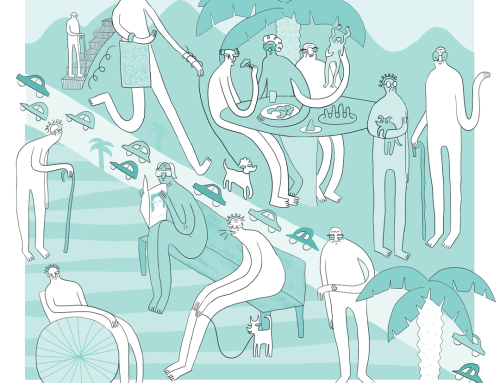Aristotle said humans are political animals because only humans have speech. If only the philosopher could see how a fruitless four months of Homo sapien blah-blah-blah had opened the door for animals to storm Spain’s parliament.
Well, not exactly animals. Those wiser beasts could care less. But PACMA, Spain’s animal rights party, hopes another round of elections on June 26 can catapult it to its highest level of legislative power yet. “No other party is in that situation,” said Silvia Barquero, PACMA’s president and candidate for parliament, by telephone from her party’s headquarters in Madrid. “Repeating these elections is a failure for the other parties, but we’re in the opposite situation because we’re getting closer to our goal and know that our results will improve.”
Bolstered by strong support in Catalonia, the Partido Animalista Contra el Maltrato Animal en España was quietly on the rise before it came oh-so-close to winning one of the parliament’s 350 seats last December.
Despite having raised only €15,000 in donations to run its campaign, the tiny party doubled its votes since the previous national elections. With 220,000 votes for the parliament, plus more than a million in the senate, PACMA outperformed several traditional parties. Those included Unió and UPyD, which both disappeared from parliament, but also Bildu of the Basque Country and Coalición Canaria, which earned seats with fewer votes than PACMA due to an election law favoring regional parties. Barquero calculates that if all of PACMA’s votes had been concentrated in one province, instead of spread out across the country, they would have translated into three seats in the chamber.
With Spain set to return to the ballot box after its leading parties failed to form a government through the winter, PACMA, like a bloodhound, can almost taste this long-awaited victory. “In December we were the surprise, and now we’re getting lots of attention,” said Barquero, who lives with four cats and one dog that she rescued from the street. “We have incredible potential growth. We know that we haven’t reached our limits because we‘ve done this with so little money.”
Catalonia gave PACMA its best result of any autonomous community in December’s elections. Barquero points to the outcry against Catalonia’s correbous, where lit torches are tied to the horns of bulls, a practice that the Catalan parliament voted to protect by law shortly after banning bullfighting in 2010. She said there was a “political interest” in ending bullfighting because it was seen as “Spanish” and supposedly foreign to Catalonia, but that the grassroots movement that had spurred lawmakers into action had wanted to end all mistreatment of bulls.
PACMA’s activists on the ground in Barcelona are also bullish about their chances later this month. “Barcelona has traditionally been the society that shows the most empathy towards animal rights, and that is reflected at the polls,” said Ana Bayle, PACMA’s coordinator for Barcelona. “Our prospects are to win at least one representative from the province of Barcelona.”
Besides prohibiting festivities that cause the pain or death of bulls, PACMA’s campaign platform calls for an end to the sacrifice of animals in animal shelters, seeks to outlaw hunting, and makes broad claims about protecting the environment and pushing for economic equality – for humans, in this case. And according to Barquero, the key to reaching the goal of being able to lecture Rajoy and other lawmakers on the benefits of veganism is turning what has now been a “sympathetic vote” from the like-minded into a wider-reaching message that the party can actually move beyond pure protest.
Previously, PACMA’s symbolic victories at the polls had been used as a measuring stick to judge the demise of other parties. Nothing underscored the humiliation of Unió and UPyD like being bested by a bunch of “animal lovers.” Barquero, however, believes the days of PAMCA being the barometer of loserdom for the mainstream parties in decline is about to be over. “I think we have gotten past that to become an influential party in terms of animal rights. Now our votes will have to be dealt with,” she said. “If they laugh at a party that gets one million votes in the senate, then they fools.”





